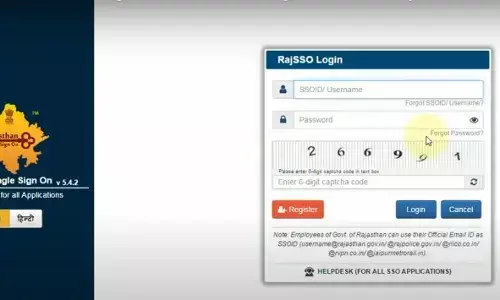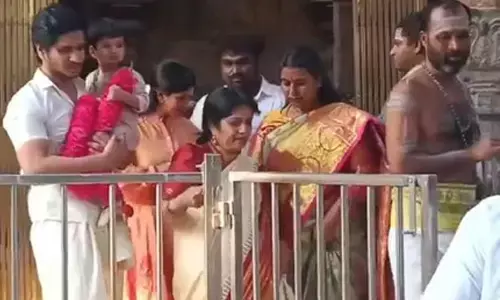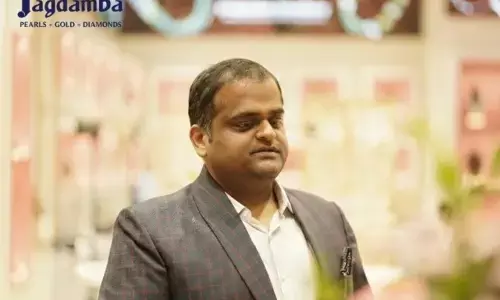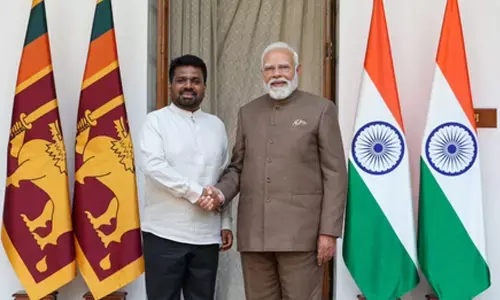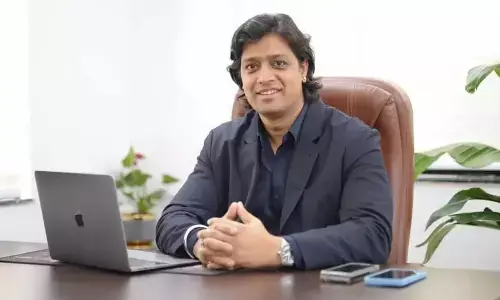Revisit 10th Schedule, restore sanctity
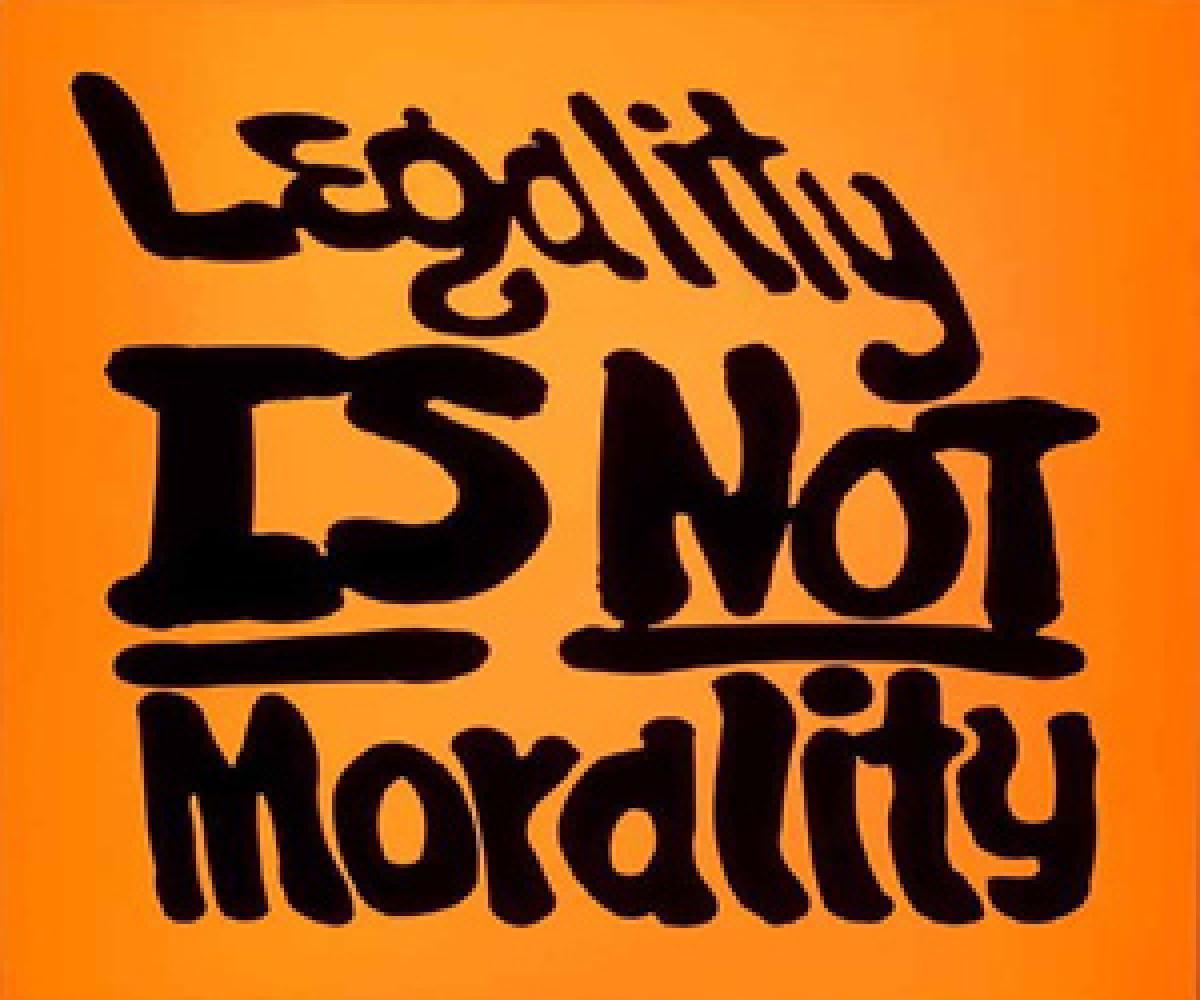
The Supreme Court has issued notices to the Speaker of Telangana State Assembly and the defected legislators, directing them to file their counters. The issue will soon come up before the apex court for hearing. The question under scrutiny is whether or not the defected legislators invite disqualification from their membership of respective houses of state legislature for switching their party loy
The Supreme Court has issued notices to the Speaker of Telangana State Assembly and the defected legislators, directing them to file their counters. The issue will soon come up before the apex court for hearing. The question under scrutiny is whether or not the defected legislators invite disqualification from their membership of respective houses of state legislature for switching their party loyalties.
The Constitutional provisions in this regard are straight and simple. The jurisprudence on anti-defection law is quite clear. Yet, the subversion of the anti-defection law continues unabated, resulting in protracted judicial process. The time has come for the highest judiciary to deliver a creative interpretation of the relevant provisions. The nation awaits such a path-breaking judgement from the apex court to put an end to the menacing politics of defection.
The Constitution is a not a static document. It has to rise to the challenges posed by contemporary practice of democracy. As Dr B R Ambedkar said, “Constitution is not a mere lawyer’s document, it is a vehicle of life, and its spirit is always the spirit of age.”
The unabashed political opportunism has encouraged a culture of political defections. This undemocratic and unethical trend has pillaged and plundered the democratic process and brutalised the people’s mandates. Thus, in 1985, the Constitutional 52nd Amendment Act added Article 102 (2) and the Tenth Schedule to the Constitution.
Therefore, a person shall be disqualified for being a Member of a House if he is so disqualified under the Tenth Schedule.
The statement of objects and reasons of the Constitutional 52nd Amendment Act say, “The evil of political defections has been a matter of national concern. If it is not combated, it is likely to undermine the very foundations of our democracy and the principles which sustain it.”
The Tenth Schedule of the Constitution reads as follows:
Disqualification on ground of defection…, a member of a House belonging to any political party shall be disqualified for being a member of the House:
(a) If he has voluntarily given up his membership of such political party; or (b) if he votes or abstains from voting in such House contrary to any direction issued by the political party to which he belongs or by any person or authority authorised by it in this behalf, without obtaining, in either case, the prior permission of such political party, person or authority and such voting or abstention has not been condoned by such political party, person or authority within fifteen days from the date of such voting or abstention. The person is deemed to belong to that political party which gave him the candidature for the election.
The masters of political defections invented a provision in the law to subvert the spirit of anti-defection law. The original act exempted splits from disqualification. It said that if one-third of the members in the house from a party decided to split, then they would not incur disqualification. However, this provision was deleted in 2003.
However, the political parties that attract defectors now invented another provision of the law. This time the defectors and their masters are exploiting the merger provision in the law to subvert the spirit of the Tenth Schedule of the Constitution.
This provision says if two-thirds of the members of a party in the house decide to merge with another political party, they will not attract disqualification under the anti-defection law. This is the context in which the presiding officers of the Telangana Legislative Assembly and the Council ruled on the merger of Telugu Desam Legislature party with the ruling TRS.
Therefore, the imperative today is to drop the merger provisions, too, to uphold the sanctity of the Constitutional provisions. If members of a political party want to merge their party with that of another, how can it be independent of the people who voted for them in the elections? Political party is not a property of few individual politicians. Member of a political party is different from that of a legislator who may also be a member of a political party.
The 2003 Amendment dropped the provisions related to splits. Now, the said constitutional provisions should further be amended to delete the merger provisions in the anti-defection law. Controversial provision related to powers of Speaker deserves to be corrected in the wake of experience to preserve the sanctity of Tenth Schedule of the Constitution.
Any question as to whether a member became subject to disqualification shall be referred to the Chairman or the Speaker, whose decision will be final. All proceedings in this regard are deemed to be proceedings in Parliament within the meaning of Article 122 or the state legislature within the meaning of Article 212 that prevents Courts from inquiring into proceedings of the Parliament/ Legislature.
The courts cannot inquire into alleged irregularities in the proceedings of the house. But, courts can inquire into allegations of substantial illegality in the proceedings of the house. The Supreme Court in Kihoto Holloham versus Zachillhu (1992) said that the Tenth Schedule imparts finality to the decisions of the presiding officers.
But, the concept of finality does not detract from or abrogate judicial review in so far as infirmities based on violation of Constitutional mandates, maladies, non-compliance with the rules of natural justice and perversity are concerned. Therefore, the courts cannot question decisions of presiding officers on the ground of substantial irregularity, but can certainly review the said decisions on the ground of substantial illegality.
Neither the court nor the legislature is supreme. The Constitution is supreme. The actions of the Chairmen/Speakers cannot be contrary to the letter and spirit of the Constitution. When the Tenth Schedule of the Constitution so clearly says that a member stands disqualified even if he voluntarily gives up the membership of the party from which he or she is elected, the presiding officers of the house cannot inordinately wait to subvert the provisions of the law or give an opportunity for the defectors to get immunity from the law.
The people holding offices under the Constitution are expected to function in accordance with the Constitution. The powers conferred by the Constitution cannot supersede the very provisions of the Constitution. Therefore, the unbridled powers of the presiding officers under the Tenth Schedule need to be reviewed.
Though the Constitution envisages the office of Chairman or Speaker to be apolitical, the reality is clearly otherwise. The Speakers often continue to be actively associated with the original political party or any other party if intends so, even after laying down the office. Thus, he or she is not immune to political partisanship. Hence, the imperative for reviewing the powers conferred by the anti- defection law to ensure fair application of these provisions.
The Para 7 of the anti-defection law bars the jurisdiction of courts in regard to application of anti-defection law. It says no court shall have any jurisdiction in respect of any manner connected with disqualification of a member of a house under this schedule.
In Kihoto Holloham versus Zachillhu (1992), the Supreme Court said that the Para 7 was liable to be struck down. Therefore, the judiciary is constitutionally empowered to review the anti-defection law to delete the provisions that provide for absolute powers to presiding officers in regard to application of anti-defection law.
The apex court has rightly observed that there is a real and imminent threat to the very fabric of Indian democracy from certain levels of political behaviour conspicuous by their utter and total disregard of well recognised political proprieties and morality.
Justice Venkatachaliah speaking for the majority in the same case held that a political party functions on the strength of shared beliefs. “Any freedom of its members… independently of the political parties’ declared policies will not only embarrass its public image and popularity but also undermine public confidence in it which, in the ultimate analysis, is its source of sustenance-nay, indeed, it’s very survival.”


